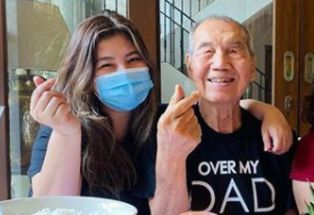What oppresses you?

[The Spirit of the Lord] has sent me to proclaim liberty to captives and recovery of sight to the blind, to let the oppressed go free...
The words spoken by Jesus in our Gospel today are not just for those rotting away in jail cells and not just for those who have lost their eyesight because of damage to their optic nerves. These words are good news for all of us. We all have some degree of unfreedom – some of us languish in penitentiaries, and some of us lock ourselves in prisons of our own making. We all have some degree of blindness – our vision is hampered by prejudices, many of which we are not even aware. We are all oppressed – though not always by what we expect.
Oppression is commonly associated with injustice and the abuse of power. While these are problems that we must address with urgency and dedication, today, let us direct our attention to the silent and hidden oppressions that afflict us.
First, the oppression from our possessions. Not having what you need is oppressive, but having what you do not need is also a burden. When I was in Grade 4, I was obsessed with a particular brand of rubber shoes that many of my classmates had. I got invited to a party which would have been the perfect opportunity to wear those shoes for the first time. I begged and begged my parents to buy me a pair, and they did. But the pants I had in my closet did not really go well with the shoes, and so I asked for a new pair of jeans. But I felt those jeans deserved a shirt that I did not have then. Long story short: My new shoes demanded so much that I ended up not going to the party. Those shoes, instead of helping me get places, held me captive.
How does Jesus free us from the oppression of possessions? Last month, we celebrated his birth, when he came into the world with nothing and was laid in a manger. Three months from now, we will commemorate his crucifixion, when he died with nothing as Roman soldiers stripped him and gambled for his clothes. When he sent his disciples to proclaim the Kingdom of God, he cautioned them to take no extra shirt for the journey. He was not really telling them to go without but to go with just enough. Anything more and we are in danger – instead of us owning our possessions, our possessions might own us.
Second, the oppression from thinking “I am right.” It is admirable when we hold firm to our convictions, but when we hold them too firmly, we risk not considering other perspectives enough. “Because I am right, those who differ from me must be wrong.” We become closed in on ourselves and miss seeing the world in greater breadth and depth.
How does Jesus free us from this oppression? Early in his ministry, he believed that he was sent only to the lost sheep of the house of Israel. This is what he told the Syrophoenician mother who approached him for the healing of her daughter (see Matthew 15:21-28). Still, Jesus listened to this foreign woman who astounded him with her faith, “Even dogs feed from the crumbs that fall from their masters’ table.” Jesus’ eyes were opened to a wider mission, and he gave the Syrophoenician not just crumbs but the banquet she deserved. If the Lord himself could learn from the faith of others, then how much more we should be humble and allow ourselves to be taught.
Third, the oppression from wanting only the best. Going for better and better should not make us just discard the good. If we want only what is awesome, if anything less is almost the same as awful, we might miss the simple beauty that everything has. Not all experiences are worthy of being posted and uploaded, of being liked and retweeted, but that does not mean that we cannot celebrate and be grateful for little blessings.
How does Jesus free us from this oppression? Look at the disciples he chose. They were not the smartest or the richest or the most loyal, but Jesus still stuck it out with them. He does the same for us who are many times far from the best, seldom better, and often not good at all. One prayer from the 1975 edition of the Sacramentary: “When we were lost and could not find our way to you, you loved us even more.”
There are more oppressions lurking inside us. What prevents us from reaching out to others? What narrows our horizons? How much the Lord wants to set us free. How can we let him?
- Latest
- Trending






























